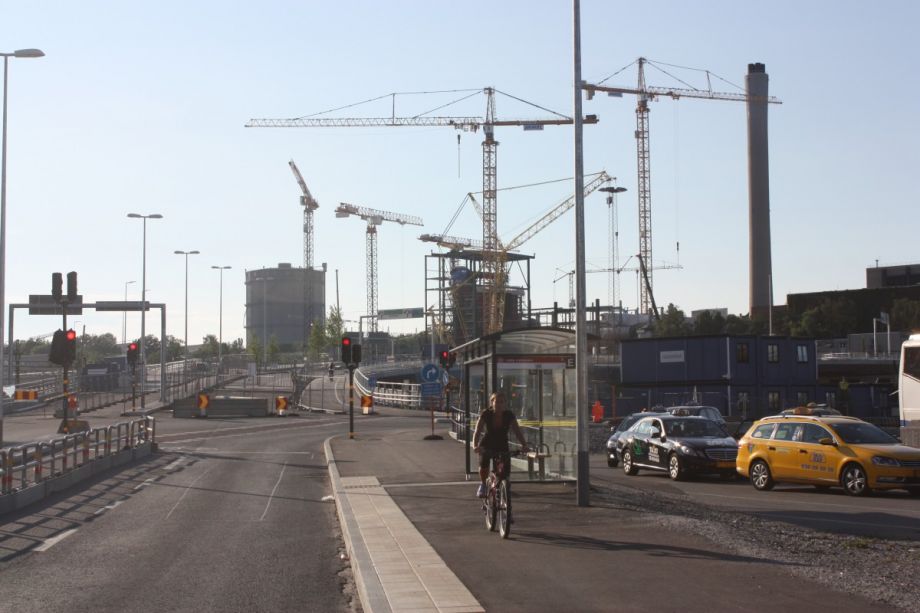“What’s cool is that you can be environmentally sustainable and grow the economy at the same time. There’s been a false choice between the two for a long time. But now we know they can fuel each other,” says Mitchell Reardon.
Indeed, the issue of environmental sustainability has often been framed as mutually exclusive from economic development, with regulation hindering market growth. Amid the current shift to seeing sustainability — especially as it relates to resilience — as a potential economic engine, Reardon and a fellow researcher decided to try to substantiate this idea and provide an example of a mechanism by which it works. Specifically, the two wanted to know: To what extent can eco-districts contribute to economic growth? They also crafted a new methodology to evaluate the impact of eco-districts on regional cleantech development that combines a quantitative analysis of productivity among firms with qualitative commentary that verifies the connection.
Reardon, co-founder of urban planning and design firm Metropolitan Collective, calls himself a “city-maker” who explores the potential for “bottom-up holistic urbanism.” His study co-author, Ryan Weber, is a planning and policy researcher based in Stockholm and focuses on connections between sustainability and urban development. The two met while completing their master’s degrees at Stockholm University.
Since 2008, Reardon and Weber have conducted five other studies on Hammarby Sjostad (Hammarby Lake City), a former Stockholm industrial district turned eco-district, on topics from participatory planning to best practices in energy-efficient buildings. Reardon also lived for a stint in Hammarby. “Enviro-sustainability became marketable and we wanted to define what was going on,” he says. Hammarby was originally meant to be a eco-friendly sports arena and athlete’s village for the 2012 Olympics. When London got the bid, plans changed. The eco-district’s features include wastewater and stormwater harvest and filtration, and incineration of local waste to produce locally generated heat and electricity, with a goal of 50 percent reduction in heat consumption.
First, Reardon and Weber looked for previous studies examining the same correlation to look for possible methodologies — and found nothing. “Sweden is amazing at collecting data on every topic you could ever want, but even so, they didn’t have data on this level,” explains Reardon. They were forced to start from scratch, designing their own methodology to collect their own data.
They began with a series of extensive interviews with representatives from three major cleantech firms involved in Hammarby and Stockholm Royal Seaport, the city’s newest eco-district: GlashusEtt, SymbioCity and Envac AB. They heard repeated tales of growth. Envac AB, a small company that makes vacuum waste disposal technology, began mainly with waste systems in hospitals and has moved up to neighborhood-scale projects after getting involved in Hammarby.
They used Enviro Sweden, a web portal for companies that aim to “show Swedish environmental technology to the world” with a database of 591 Swedish companies, to begin their quantitative research. They investigated the websites of each company to identify those that had head offices in Stockholm County and provided technologies or services that are attributed to eco-district development. The criteria they used for this distinction was, according to the study: “Does it deliver a product/service relating to waste management, water and/or air quality; and/or the relationship between energy efficiency/renewable energy and building design, construction or management?” This left them with 51 companies.
They managed to collect data from Statistics Sweden, a government data portal, on the economic turnover of 44 of those companies from 2003 to 2012. They eliminated four large outlier companies like Siemens and IBM because, as Reardon explains, “it’s hard to say that a company [with such a diverse business profile] is benefitting specifically from any one thing.” What they were left with, Reardon calls the “best available data,” or “BAD.”
The aim was to challenge the overarching notion that eco-districts were increasing the market for clean technology. So they used their BAD quantitative data to attempt to falsify the results of their qualitative analysis. “In the beginning, I was skeptical because Stockholm does a very effective job of marketing itself. At the same time there’s an implicit notion that eco-districts help economies.” But the data on both sides agreed: The eco-districts were valuable in fueling growth in the industry.
“We were surprised by the extent to which clean technology grew between 2006 and 2012. We knew there was growth, but, among the 44 companies, their GDP increased about 90.4 percent from 500 million SEK to nearly 1 billion SEK, and that’s through the great recession. During the same period, Sweden’s GDP increased by only 29.5 percent,” says Reardon.
Reardon and Weber are currently in the process of setting up the next round of research, which will provide comparisons on the cleantech impacts of eco-districts in different cities.
The Science of Cities column is made possible with the support of the John D. and Catherine T. MacArthur Foundation.

Zoe Mendelson is a journalist in Mexico City campaigning for a more chiller world. Her work has been featured on Fast Company, Buzzfeed, Untapped Cities and elsewhere.
Follow Zoe .(JavaScript must be enabled to view this email address)










